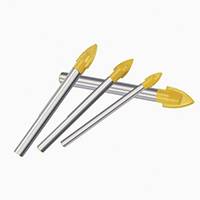loading...
- No. 9, Xingyuan South Street, Dongwaihuan Road, Zaoqiang County, Hengshui, Hebei, China
- admin@zjcomposites.com
- +86 15097380338
- Welcome to visit our website!
Advancements in FRP Pressure Vessels for Enhanced Performance and Safety Applications
Understanding FRP Pressure Vessels Applications and Advantages
Fiber-Reinforced Polymer (FRP) pressure vessels have gained significant recognition in various industries due to their exceptional properties and performance. These vessels, primarily made from a composite of glass, carbon, or aramid fibers in a polymer matrix, are designed to withstand high pressures and corrosive environments. This article delves into the fundamentals of FRP pressure vessels, their applications, distinct advantages, and the challenges they may present.
What are FRP Pressure Vessels?
FRP pressure vessels are specialized containers used to hold gases and liquids at high pressures. Their construction typically involves layering fibril materials with a resin that hardens to form a robust, lightweight composite. The unique combination of materials endows FRP vessels with high strength-to-weight ratios, making them ideal for numerous high-performance applications.
Applications of FRP Pressure Vessels
The versatility of FRP pressure vessels allows them to be employed across various sectors
1. Chemical Processing In industries where corrosive substances are prevalent, such as the chemical manufacturing sector, FRP vessels are utilized for storing and transporting chemicals safely. Their resistance to corrosion significantly reduces maintenance costs and enhances operational safety.
2. Oil and Gas In the oil and gas industry, FRP pressure vessels are essential for offshore and onshore drilling operations. They can withstand harsh environmental conditions, thus ensuring reliable performance in processes that involve high-pressure gas storage or transportation.
3. Water Treatment FRP vessels are also extensively used in water and wastewater treatment plants. Their resistance to chemical attack makes them suitable for applications involving chlorine or other harsh chemicals, leading to increased longevity and reduced exposure risks.
4. Renewable Energy The renewable energy sector, particularly in wind and solar power, benefits from the use of FRP pressure vessels in storage tanks and pressure systems. The lightweight nature of FRP materials aids in optimizing the design and installation of these systems.
5. Aerospace and Automotive In aerospace applications, FRP vessels are favored for fuel tanks and hydraulic systems due to their lightweight properties and durability. Similarly, in the automotive industry, they are utilized in high-performance vehicles to improve efficiency and reduce overall weight.
Advantages of FRP Pressure Vessels
The adoption of FRP pressure vessels presents several key advantages
frp pressure vessels

1. Corrosion Resistance One of the most significant benefits of FRP vessels is their impressive resistance to wear and corrosion. Unlike traditional materials like steel, FRP does not rust, ensuring long service life and lower maintenance needs.
2. Lightweight The low density of FRP materials contributes to substantial weight savings, making transportation and installation easier and more cost-effective.
3. Customization FRP technology allows for easy customization of vessel shapes and sizes, catering to specific industrial requirements and unique applications.
4. Thermal Insulation FRP materials provide excellent thermal insulation properties, which can be crucial in processes where temperature stability is required.
5. Safety The combination of strength and lightweight nature reduces the risk of explosion or rupture, making FRP vessels a safer choice in high-pressure applications.
Challenges of FRP Pressure Vessels
While FRP pressure vessels offer numerous benefits, they do face certain challenges
1. Cost The initial investment for FRP pressure vessels can be higher than traditional materials, though long-term savings may offset this in terms of maintenance and longevity.
2. Standardization The lack of standard regulations and certifications for some FRP products can complicate their acceptance in critical applications.
3. Impact Resistance While FRP materials are strong, they may be more susceptible to damage from sharp impacts compared to metals.
Conclusion
In summary, FRP pressure vessels represent a modern solution to the challenges posed by traditional storage methods. Their applications span diverse industries, showcasing their flexibility and efficiency. As technology continues to advance and materials science evolves, FRP pressure vessels are likely to become an even more integral part of engineering solutions, driving innovation and safety across sectors.
-
The Rise of FRP Profiles: Strong, Lightweight, and Built to LastNewsJul.14,2025
-
SMC Panel Tanks: A Modern Water Storage Solution for All EnvironmentsNewsJul.14,2025
-
GRP Grating: A Modern Solution for Safe and Durable Access SystemsNewsJul.14,2025
-
Galvanized Steel Water Tanks: Durable, Reliable, and Ready for UseNewsJul.14,2025
-
FRP Mini Mesh Grating: The Safer, Smarter Flooring SolutionNewsJul.14,2025
-
Exploring FRP Vessels: Durable Solutions for Modern Fluid HandlingNewsJul.14,2025
-
GRP Structures: The Future of Lightweight, High-Performance EngineeringNewsJun.20,2025
